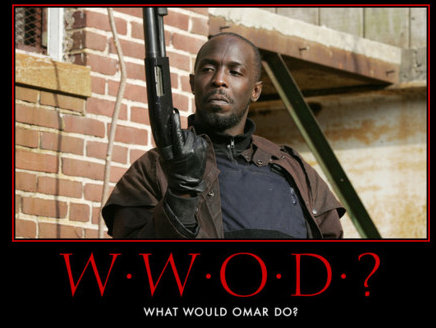

Beautiful boyfriends who would appear naked in bed with him, making it impossible for viewers not to see his sexuality as part of his identity. A stick-up man with street cred who also had boyfriends. And while I loved Foxx’s Wanda and Lawrence’s Sheneneh, there is a difference between “laughing with” and “laughing at.” Considering the lack of Black queer visibility in Black spaces, it certainly felt like the latter.īut Williams’ Omar was menacing. In bringing the character of Omar to life, Williams resurrected aspects of Black queerness that had largely gone missing in Black artistry outside of theater and comedians such as Martin Lawrence and Jamie Foxx doing drag on TV. That’s what made Williams’ work on the show as transformative as it was urgent.

It took something like Hughes’ poem “ Mother to Son” and assumed the line “life for me ain’t been no crystal stair” was solely about the impact of racism and not homophobia or a combination of the two. Over time, this whittling away of queer visibility filtered the work of Black LGBTQ artists solely through a heterosexual lens. said was “as gay as it was Black, not that it was exclusively either.”įrom Gladys Bentley and Ethel Waters to James Baldwin and Langston Hughes, the contributions of open Black LGBTQ people are present to this day, even though their sexual orientation and gender identities were shoved in the closet decades ago. A version being snuffed out in most retellings of Prohibition America and the Harlem Renaissance, which scholar Henry Louis Gates Jr. But, of course, that’s only part of Williams’ story.ĭavid Simon, creator of the show, once told me that whenever someone asked him why he made Omar gay, he would respond: Why did we make the other 19 characters straight? It’s a brilliant counterpoint, one that confronts without antagonizing, while touching on the theme of the first LGBTQ equality march on Washington, back in 1979: We are everywhere.īut for people to accept the premise that the most feared man in one of Baltimore’s most dangerous neighborhoods was openly gay, the actor portraying him had to first breathe life into an asphyxiated version of Black masculinity. That in and of itself is reason enough to mourn the passing of Williams, as we would any great artist whose work has touched us profoundly.


 0 kommentar(er)
0 kommentar(er)
